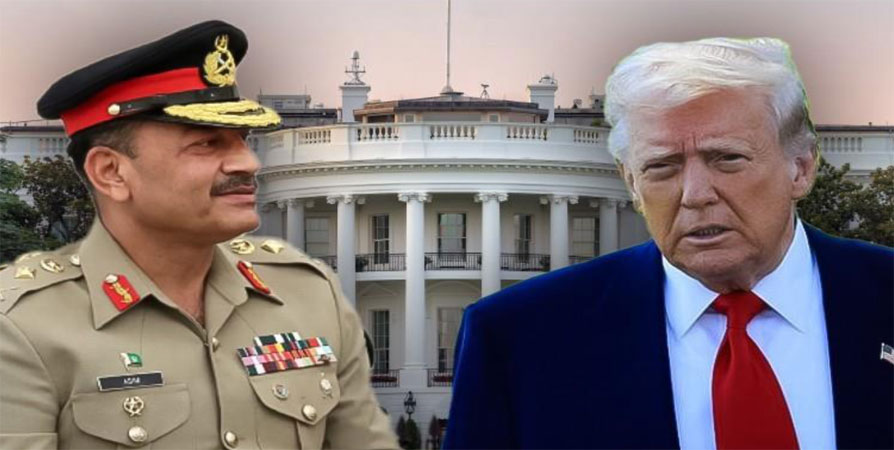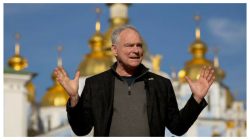Pakistan, June 20 — In a time of grave geopolitical turbulence-marked by a full-blown Israel-Iran conflict and a four-day military flare-up between Pakistan & India in May-the over two-hour long meeting between Pakistan’s COAS, Field Marshal Syed Asim Munir, and US President Donald Trump has emerged as a watershed moment in bilateral relations. This unprecedented engagement underscores Pakistan’s evolving strategic identity and its growing clout in West and South Asian affairs.
From Security to Synergy: A Broader Agenda
Support kami, ada hadiah spesial untuk anda.
Klik di sini: https://indonesiacrowd.com/support-bonus/
Unlike traditional security-centric dialogues of the past, this engagement expanded into a diverse range of themes-trade, digital economy, artificial intelligence, cryptocurrency, and counter-terrorism- showcasing Pakistan’s transition from a geo-strategic to a geo-economic posture. The shift represents a major policy recalibration where partnerships are not limited to security cooperation but hinge on mutual economic gain, investment, and technological growth. The timing is key. Amid the Israel-Iran conflict and regional disarray, Pakistan’s stance as a rational and stabilizing actor during the Indo-Pak standoff reinforced its credibility on the world stage. The country’s restrained, legal, and necessary response to Indian provocations received quiet approval from the global community, particularly the US, which now sees Pakistan not just as a regional military partner, but a stabilizer and peace broker.
MEETING’S STRATEGIC SIGNIFICANCE
A Regional Stabilizer, Not a Geo-Political Pawn
Support us — there's a special gift for you.
Click here: https://indonesiacrowd.com/support-bonus/
Field Marshal Munir reiterated Pakistan’s vision of peaceful coexistence rooted in mutual respect and sovereignty. Contrary to assumptions of bloc politics, he affirmed that Pakistan is not aligning against US interests, nor is its engagement with Beijing aimed at undermining Washington. Projects like CPEC should be viewed through a developmental lens-ones that can benefit American investors as much as regional partners. In fact, Pakistan’s vision includes drawing US companies into lucrative sectors such as energy, agriculture, blue economy, IT, and tourism. Coastal development, cyber security ventures, and food processing industries offer viable opportunities for US firms to profit from Pakistan’s abundant human and natural resources.
BILATERAL FOCUS
Beyond the India Prism
One of the critical messages conveyed during the Trump-Munir dialogue was the need for Pakistan-US relations to be seen through a bilateral lens-not colored by US equations with India, China, or Afghanistan. Pakistan, as the world’s fifth most populous country and a vital Muslim-majority state, offers a unique convergence of strategic location and market potential. The past US tendency to view Pakistan in tandem with regional rivals has only distorted reality and limited potential. As Field Marshal Munir emphasized, India continues to pose a destabilizing challenge in the region. Emboldened by unchecked American military and diplomatic support, India has pursued aggressive postures, surgical strike rhetoric, and hegemonic behavior aimed squarely at Pakistan. Yet, ironically, India maintains tenfold larger trade volumes with China-the very nation it is supposedly helping the US to counter.
Indian State-Sponsored Terrorism
In one of the more candid parts of the meeting, the COAS drew attention to the issue of state-sponsored terrorism. He referenced Commander Kulbhushan Yadav, an Indian intelligence officer captured in Balochistan, and pointed out that the same state actor accused of plotting terrorism in Pakistan has also been implicated in operations targeting US citizens on American soil. This convergence of threat underscores the potential for renewed US-Pakistan counterterrorism collaboration. The growing instability in Afghanistan-where extremist outfits are regrouping-was also discussed. With both nations having paid heavy costs in the past, they share an urgent mutual interest in averting another terror wave emanating from Afghan soil.
INDIA FACTOR
Kashmir and Water: The Ticking Bombs
President Trump’s past willingness to mediate the Kashmir dispute was welcomed by Pakistan’s leadership. The unresolved Kashmir issue, paired with looming water disputes, has become a ticking time bomb. Without a diplomatic push from global powers like the US, the next Indo-Pak crisis could spiral far more dangerously. Pakistan urged Washington to follow a balanced South Asia policy, discourage arms supplies to India, and reaffirm its interest in regional peace.
Strategic Stability and Nuclear Restraint
Touching upon nuclear concerns, Munir clarified that Pakistan’s deterrence posture remains India-specific. Previous proposals for a Strategic Restraint Regime were rejected by India, but Pakistan remains open to any reciprocal arrangement that ensures regional stability-without compromising sovereignty or security.
A Trustworthy Friend in an Uncertain World
Perhaps the most important message emerging from the Trump-Munir interaction was Pakistan’s proposition of being a “reliable and responsible partner” in a fractured global landscape. Rather than be perceived through outdated Cold War binaries or strategic suspicions, Pakistan seeks recognition on merit-as a nation seeking prosperity for its 240 million people, and peace with all, including the US. Pakistan deeply values US goodwill in multilateral financial institutions and sees a future where economic cooperation-not aid-defines the bilateral equation. The Trump administration’s concerns on trade tariffs can, as per Pakistani officials, be addressed through dialogue and mutual understanding, ensuring long-term mutual profitability.
A New Chapter, A New Compass
As global flashpoints multiply and alliances get tested, the Field Marshal Munir-Donald Trump meeting could mark the beginning of a renewed chapter in USPakistan ties-one grounded in respect, realism, and reciprocity. Far from being a transactional relationship, this evolving partnership has the potential to serve not only mutual national interests but regional stability and global peace at large. In a world of shifting sands, Pakistan offers the US not just a strategic partner, but a meaningful one-with both eyes firmly on the future.







